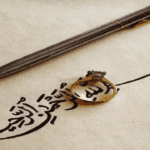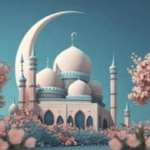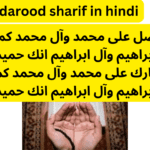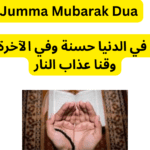Eid ka Chand, the sighting of the crescent moon marking the end of Ramadan and the commencement of Eid celebrations, holds immense significance in the Islamic calendar. Its observation symbolizes unity, spirituality, and community engagement.
اَللّٰهُمَّ أَهِلَّهُ عَلَيْنَا بِالْيُمْنِ وَالْإِيمَانِ وَالسَّلَامَةِ وَالْإِسْلَامِ وَالتَّوْفِيقِ لِمَا تُحِبُّ وَتَرْضیٰ رَبِّي وَرَبُّكَ اللّٰہُ
یا الٰہی عزوجل اس چاند کو ہم پر برکت کے ساتھ اور ایمان و سلامتی اور اسلام اور اس چیز کی توفیق کے ساتھ نکال جس سے تو راضی ہوتا ہے اور پسند کرتا ہے، (اے پہلی رات کے چاند) میرا اور تیرا رب اللہ عزوجل ہے۔
O Allah Azzawajal make this moon come out on us with blessings and with Iman and peace and Islam and make it come out with the ability of that thing which pleases you and that you like, (O moom of the first night my and your Lord is Allah Azzawajal).

Contents
Understanding the Significance of Spotting the Eid ka Chand
Importance in Islamic Calendar
The Islamic lunar calendar operates based on the sighting of the crescent moon, making Eid ka Chand a pivotal moment. It determines the start of Eid al-Fitr, a festival celebrated by Muslims worldwide.
Spiritual and Cultural Importance
Beyond its calendar implications, the sighting of the Eid ka Chand embodies spiritual depth. It fosters a sense of anticipation, unity, and joy among communities globally.
The Tradition of Dua (Supplication) for Spotting the Eid ka Chand
Historical Context
The tradition of reciting a special supplication, or Dua, during the search for the Eid ka Chand has historical roots, tracing back to the Prophet Muhammad’s teachings.
Relevance in Contemporary Practices
In modern times, this tradition continues, demonstrating the preservation of cultural and religious customs.
The Dua for Spotting the Eid ka Chand
Arabic Text and Translation
The Dua for sighting the Eid ka Chand: “Allahumma ahillahu ‘alaina bil-yumni wa’l-imaani was-salamati wal-Islami, Rabbi wa rabbuka Allah.” Translation: “O Allah, let this moon appear on us with prosperity, faith, safety, and submission. My Lord and your Lord is Allah.”
Meaning and Symbolism
This supplication reflects the devout believer’s plea for blessings, peace, and unity upon the sighting of the crescent moon.
Best Practices and Rituals Associated with the Dua
Recommended Times to Recite
Muslims recite this Dua during the designated time of moon sighting, emphasizing the importance of unity and spiritual reflection.
Personal Reflection and Community Engagement
Individuals and communities engage in communal efforts, such as mosque gatherings or rooftop sightings, enhancing the collective experience.
Impact of Eid ka Chand on Celebrations
Commencement of Eid Celebrations
The sighting of the Eid ka Chand officially announces the end of Ramadan and marks the beginning of joyous Eid festivities.
Uniting Communities
This event unites diverse communities globally, emphasizing the shared cultural and spiritual significance of the Islamic tradition.
Conclusion
The tradition of spotting the Eid ka Chand and reciting the associated Dua embodies the essence of unity, spirituality, and communal engagement in the Muslim world. It reflects the anticipation and joy that accompany the end of Ramadan and the commencement of Eid celebrations.
FAQs
What is the significance of sighting the Eid ka Chand?
The sighting marks the end of Ramadan and the start of Eid celebrations, uniting communities and carrying spiritual importance.
Is there a specific time to recite the Dua for sighting the Eid ka Chand?
It is recommended to recite the Dua during the designated time for moon sighting.
Can non-Muslims participate in the tradition of spotting the Eid ka Chand?
While it’s a predominantly Muslim tradition, the spirit of unity welcomes all to partake in the communal experience.
How does the Eid ka Chand impact global Muslim communities?
It unites Muslims worldwide, fostering a shared celebration and emphasizing cultural and spiritual connections.
Is the Dua for sighting the Eid ka Chand obligatory?
While not obligatory, it holds significance in Islamic tradition and is encouraged as part of the communal experience.










